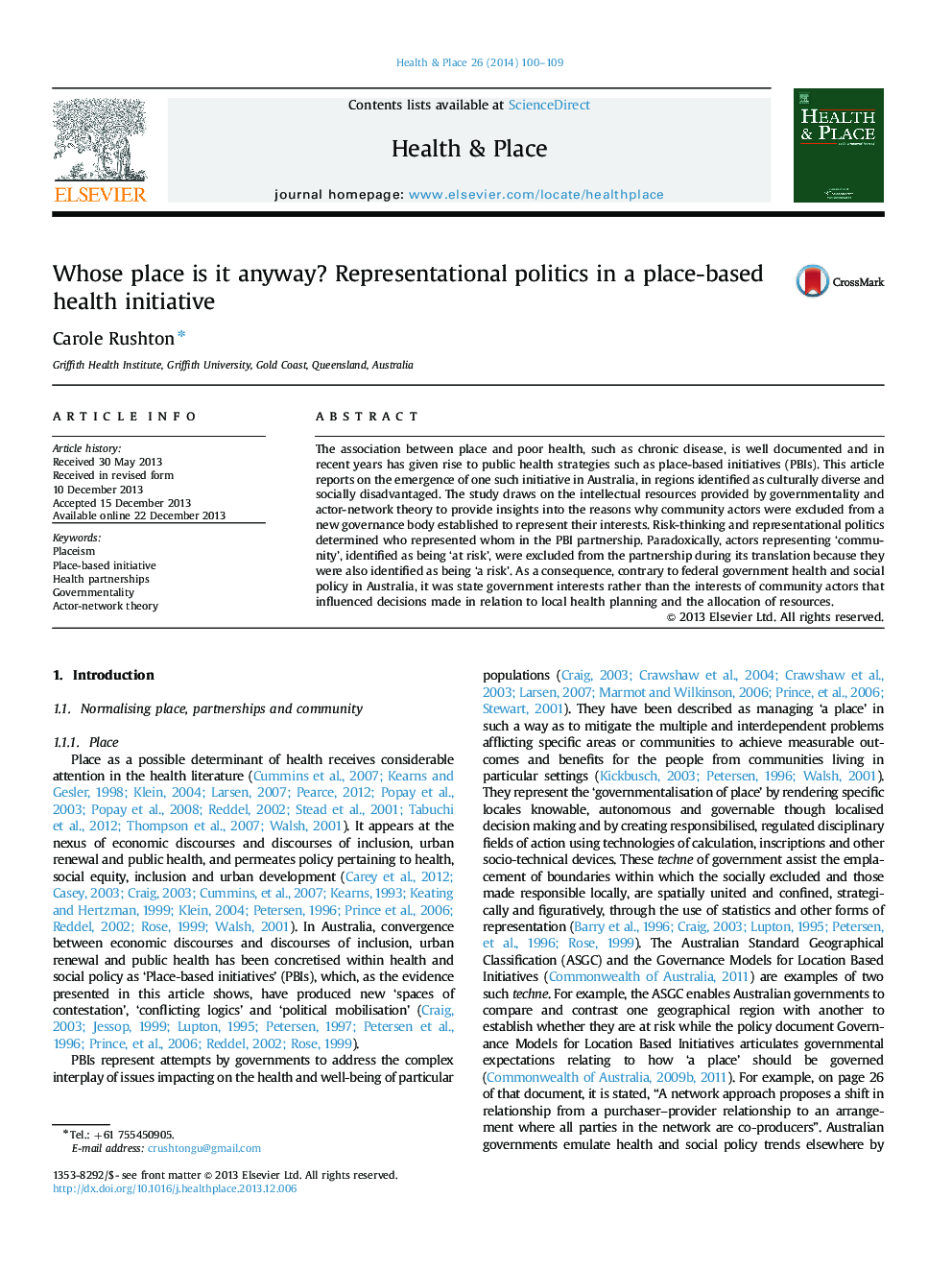| Article ID | Journal | Published Year | Pages | File Type |
|---|---|---|---|---|
| 7458758 | Health & Place | 2014 | 10 Pages |
Abstract
The association between place and poor health, such as chronic disease, is well documented and in recent years has given rise to public health strategies such as place-based initiatives (PBIs). This article reports on the emergence of one such initiative in Australia, in regions identified as culturally diverse and socially disadvantaged. The study draws on the intellectual resources provided by governmentality and actor-network theory to provide insights into the reasons why community actors were excluded from a new governance body established to represent their interests. Risk-thinking and representational politics determined who represented whom in the PBI partnership. Paradoxically, actors representing 'community', identified as being 'at risk', were excluded from the partnership during its translation because they were also identified as being 'a risk'. As a consequence, contrary to federal government health and social policy in Australia, it was state government interests rather than the interests of community actors that influenced decisions made in relation to local health planning and the allocation of resources.
Keywords
Related Topics
Health Sciences
Medicine and Dentistry
Public Health and Health Policy
Authors
Carole Rushton,
